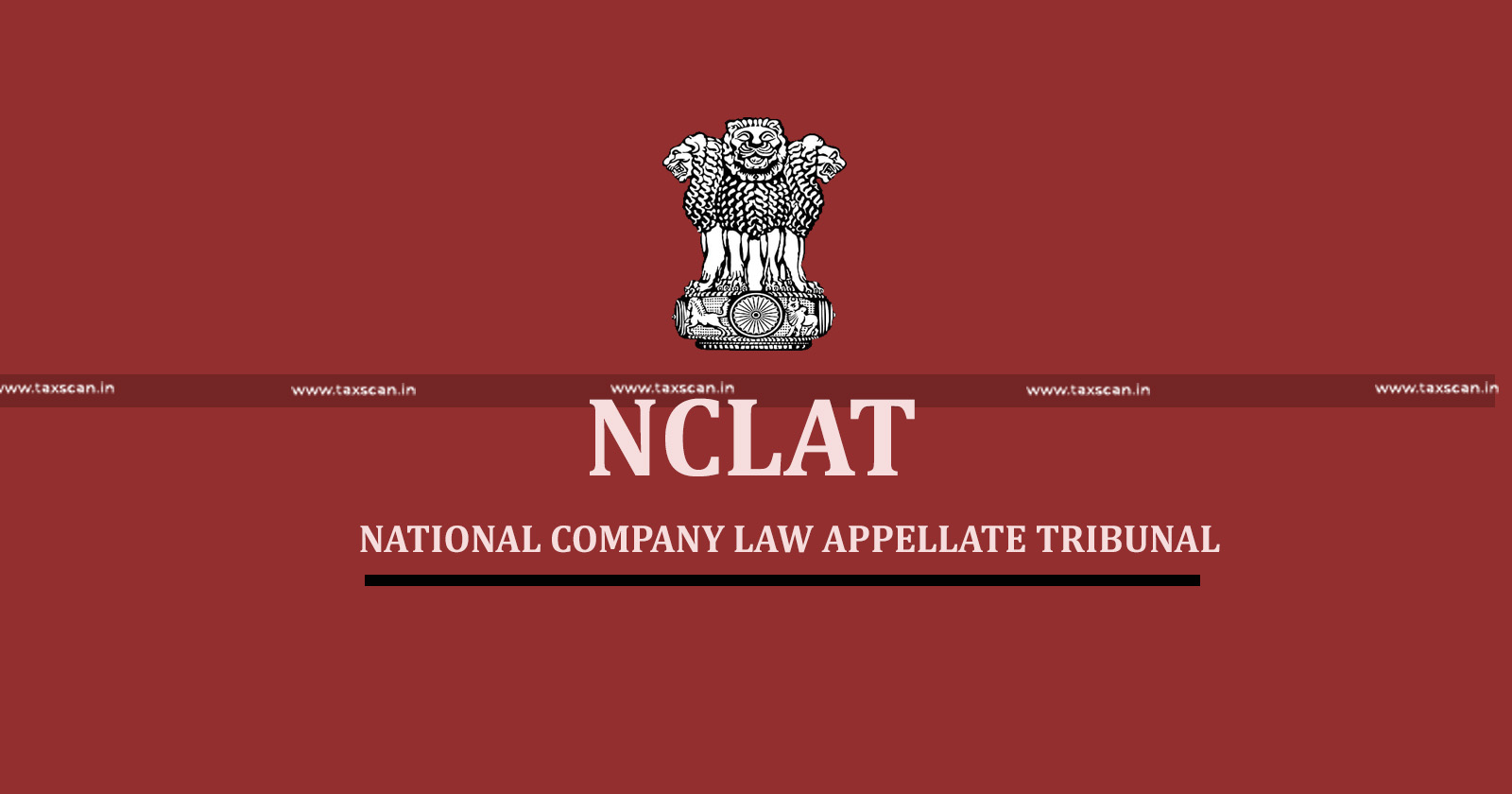RP cannot accept any claim after Lapse of Extended Period of 90 days of Insolvency Commencement Date: NCLAT [Read Order]
The NCLAT upheld the act of the RP in rejecting the claims of the appellant as they were filed after the deadline

NCLAT – National Company Law Appellate Tribunal – Resolution Professional – RP – TAXSCAN
NCLAT – National Company Law Appellate Tribunal – Resolution Professional – RP – TAXSCAN
In a significant case, the Principal bench of National Company Law Appellate Tribunal ( NCLAT ), held that Resolution Professional ( RP ) cannot accept any claim after the lapse of extended period of 90 days of the insolvency commencement date. The tribunal ruled that the provisions of Income Tax Act do not create any charge or security interest in favour of the Appellant or provides any foundational basis for the Income Tax Department to be a secured Creditor.
A petition under section 7 of the IBC was filed by IDBI Bank Ltd , financial creditor against JBF Petrochemical Ltd. , Corporate Debtor. During the moratorium, tax assessment proceedings were initiated by the commissioner of income tax (appellant) against the corporate debtor. An order for the assessment year 2018-19 was passed on March 31, 2022. The appellant filed claims with Resolution Professional (RP) on May 13, 2022 which were filed after the expiry of 90 days within which the claim had to be filed. The time for filing the claims expired on April 28, 2022.
GPT-Powered Filing – Streamline Your Faceless Appeal Process - Enroll Now
The claims for Assessment Year 2018-19 and CPC-processed demands for AYs 2019-20 to 2021-22 were filed got rejected by the RP. An appeal was filed by the appellant against the rejection of claims and approval of the resolution plan.
The appellant submitted that the RP rejected its claims without proper consideration. It was argued that it was not informed of the rejection of its claims by the RP. Further argued that the appellant was not provided adequate opportunity to present its claims and against the rejection of its claims. It amounted to the violation of principle of natural justice and contravened section 30(2) of the IBC.
Per contra, the respondent submitted that the process of CIRP was conducted in accordance with CIRP regulations. It was further argued that the appellant was duly informed of the initiation of the insolvency proceedings. It was further submitted that a public announcement was made for this purpose. It was further contended that the RP was under no obligation to inform every person including the appellant personally about the last date for submitting the claims.
It was further argued that the claims of the appellant were time barred as they were filed after 90 days following the insolvency commencement date. It was further submitted that the RP was not obligated to admit the claims filed after the expiry period as per regulation 12 of the CIRP regulations. It was further argued that the status of claims was regularly posted and updated on the website of the corporate debtor and the Insolvency and Bankruptcy Board of India (IBBI) portal.
The NCLAT observed that it is the bounden duty of the RP to verify claims of all the stakeholders in a just and transparent manner. The RP can also seek further evidence for this purpose to substantiate the claims.
It was observed that the claims filed after the expiry of 90 days period cannot be admitted by the RP. In the present case, the claims were filed after the deadline and there were no evidence which will demonstrate any contravention of the regulations and lack of due diligence on the part of the RP.
GPT-Powered Filing – Streamline Your Faceless Appeal Process - Enroll Now
The tribunal noted that list of creditors were regularly updated and posted on the website of the corporate debtor and on IBBI portal which shall be deemed to be a constructive notice. It was observed that no new claim can be admitted after the approval of a resolution plan by the Committee of Creditors (CoC) and adjudicating authority. The tribunal held that when the plan has already been approved by both the CoC and the Adjudicating Authority, it cannot be reopened now on the basis of claims being belatedly agitated by the Appellant who for no justifiable reasons had clearly dropped the guard of being vigilant in pursuing his claims within the time-lines laid down by IBC.
The bench comprising Mr. Justice Ashok Bhushan (Chairperson) and Mr. Barun Mitra (Technical Member), viewed that the creation of a charge by operation of law must be apparent from the express words of the statute. The provisions of Income Tax Act do not create any charge or security interest in favour of the Appellant or provides any foundational basis for the Income Tax Department to be a secured Creditor.
While dismissing the appeal, the NCLAT upheld the act of the RP in rejecting the claims of the appellant as they were filed after the deadline. It was held that tax claims do not create any charge or security interest in favour of the Income Tax Department therefore they could not be considered as secured creditor.
To Read the full text of the Order CLICK HERE
Support our journalism by subscribing to Taxscan premium. Follow us on Telegram for quick updates


